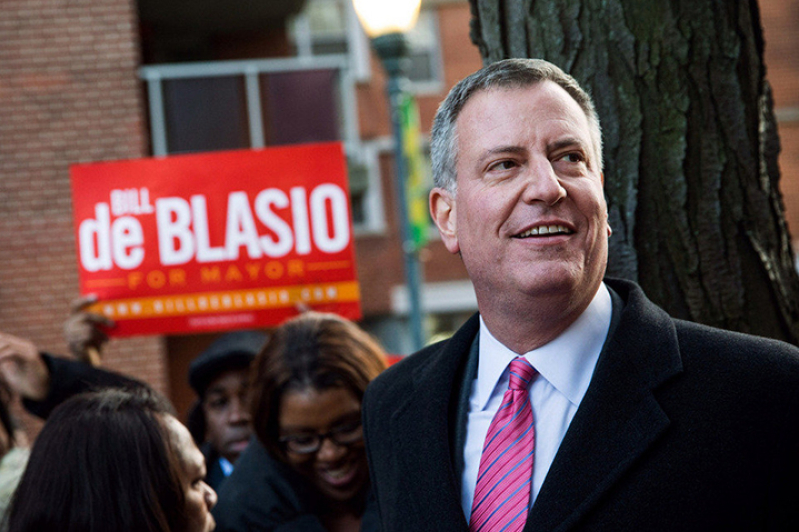
As Christianity is being pushed further and further out of our public schools in the name of a separation of church and state, New York City has decided that celebrating Islamic religious holidays is just fine.
"Today we'll announce the addition of Eid al-Adha & al-Fitr to @NYCSchools holiday schedule, a change that respects the diversity of our city," a tweet from NYC mayor Bill de Blasio said yesterday afternoon.
This means that September 24 (Eid al-Adha) and July 5 or 6 (Eid al-Fitr) will now be official holidays in the NYC public school system for 2016, and the 1.1 million students who attend the public school system will have those days off.
This move was first proposed and approved by the Cty Council back in 2008, but the mayor at the time, Michael Bloomberg, opposed the measure. When de Blasio took office on January 1, 2014, one of his first promises was to instill the two Muslim holidays as official.
"This is monumental as New York City has the largest public school system in the country with well over 1 million students," added Linda Sarsour, executive director of the Arab American Association of New York. "Muslim children will never again have to choose between their faith and their education. Today is a day that will go down in history. We did this for our children and the generations to come. Thank you New York City for making me even more proud to be a New Yorker. I thank Allah for allowing me and my colleagues to see the fruits of our labor."
But as this move is meant to "respect the diversity" in NYC, one can't help but wonder about the other culturally diverse groups that won't have their faith celebrated by a state-funded institution.
In 2010, the leader of a Hindu group in Vermont asked the public school district there to add Diwali, the Hindu festival of lights, to the holiday schedule after the school system instilled a day off for Eid al-Fitr. The school district refused the request.
The Hindu America Foundation expressed their disappointment at the NYC mayor's decision yesterday, and showed concern that other holidays, such as Diwali and the Chinese New Year, were not considered. So much for diversity.
And this, of course, is above and beyond the argument from those who have fought to remove Christian holidays from our public school system for years now. Despite the fact that Christianity is represented by an overhwelming majority of students and families who attend public schools nationwide, we've had to accept the changing of Easter Break to "Spring Break" and Christmas Break to "Winter Break." For diversity!
But New York City isn't the first to introduce Islamic holidays to the school schedule. Burlington, Vt.; Cambridge, Mass.; Dearborn, Mich.; Frederick County, Md.; Paterson and South Brunswick, N.J.; and Waterbury, Conn have all closed during the largest Muslim holidays in recent years. Most public school systems don't penalize students for missing school on any religious holiday.
To clarify, it's not the inclusion of a Muslim holiday that's upsetting Christians around the country, it's the glaring double-standard that comes from those who also stand to restrict Christian holidays in the name of what they believe was written in the U.S. Constitution regarding a separation of church and state.
The phrase "separation of church and state" isn't in the Constitution, but was instead used by Thomas Jefferson in a letter he wrote to the Danbury Baptist Association in 1802. "I contemplate with sovereign reverence that act of the whole American people which declared that their legislature should 'make no law respecting an establishment of religion, or prohibiting the free exercise thereof,' thus building a wall of separation between Church & State."
The First Amendment, however, was added to prohibit the creation of any law that impedes the free exercise of religion. So the inclusion of Muslim holidays in the public school system is certainly allowed, especially on a state or city level, but Christians should take this as a tool to further strengthen their own fight to keep the Christian holidays (and their proper names) in those same schools.
Let's get Christmas and Easter back on that schedule... for diversity.







